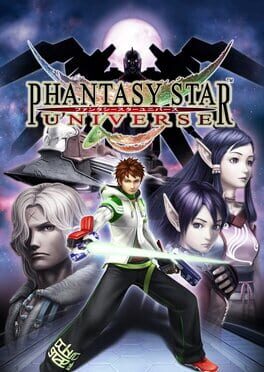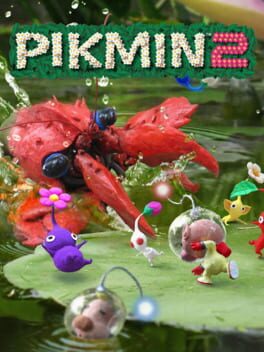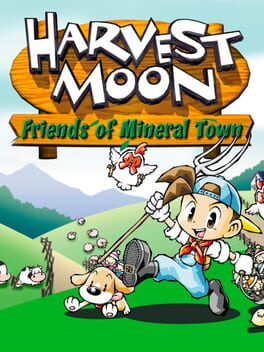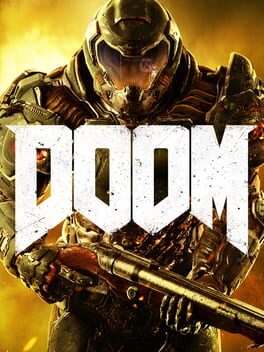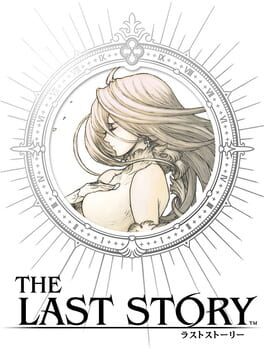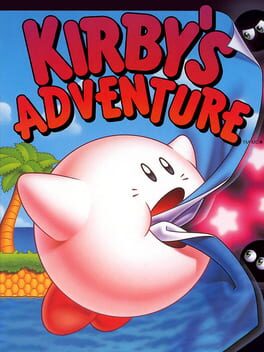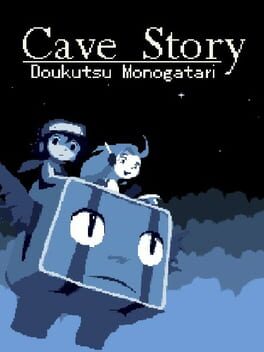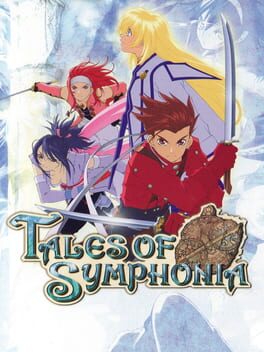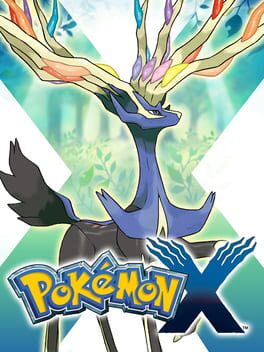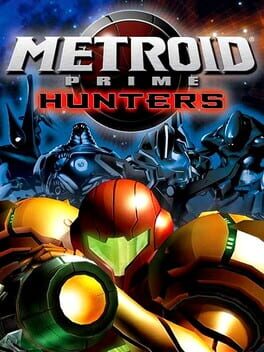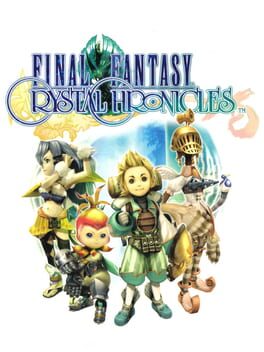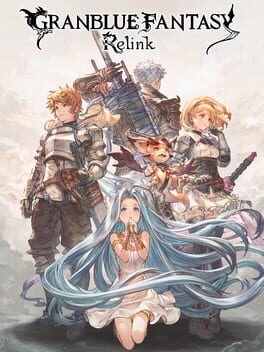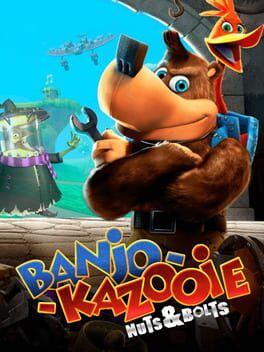Man, I have some feelings about Phantasy Star Universe, a lot of them nebulous and uncomfortable. Everybody has that one video game where they in retrospect realize is really bad, but it doesn't stop you from pouring dozens if not hundreds of hours into it just because it evokes a certain pathos from you.
I got drafted into playing PSU because of a psychotic friend who has thousands of hours in the X360 version. I ended up putting a few hundred in myself. Then we watched the world end together as the servers came to a solemn close. Cue several years and one privately-run server later, PSU is back! But I'm well past the age of thinking this game is good, so I'm happy the private server exists. ...Alright fine, so I started playing it again.
And I don't know why I have, because again, this isn't a good game! It's not bad, but it's very very old. The combat is mindless button-mashing and corralling enemies into groups to slaughter them with. There's no dodge or block or dash button. Guns have an arbitrary ammo system that just makes them straight-up suck to use. Techniques and photon arts only leveled up the more you used them which lead to shitloads of grinding and "buff parties". The weapon-leveling system could fail and destroy your weapon permanently. There's just a lot of needlessly obtuse and mean-spirited systems present in the game. So why play it?
Phantasy Star Online remains one of my favorite games of all time, and this game feels like a step sideways for a Dreamcast-to-X360 game. Honestly I couldn't tell you which game plays better, which is either a testament to how well PSO's aged or a testament to how terrible PSU is. But the vibe remains similar. There is a cool dystopian future vibe to the entire game, with locales overrun with monsters and enemies, and bastions of civilization seeming sparse and empty due to it being relative to how many real-world players occupy each area. The music is still pretty solid (but still incapable of touching PSO) and the general art direction is still pretty evocative.
Phantasy Star Universe was meant to be a follow-up to Phantasy Star Online's enormous legacy, but it's a game that does pretty much everything just as well or worse than a game that came out 6 years ago. It's a sidegrade to a game that precedes it by a whole generation. With the Portable games improving on PSU's formula and PSO2 going in a separate direction that felt faithful to PSO, Phantasy Star Universe is just going to occupy an awkward part of Sega's history.
Anyways, I'll be on it if anybody needs me.
I got drafted into playing PSU because of a psychotic friend who has thousands of hours in the X360 version. I ended up putting a few hundred in myself. Then we watched the world end together as the servers came to a solemn close. Cue several years and one privately-run server later, PSU is back! But I'm well past the age of thinking this game is good, so I'm happy the private server exists. ...Alright fine, so I started playing it again.
And I don't know why I have, because again, this isn't a good game! It's not bad, but it's very very old. The combat is mindless button-mashing and corralling enemies into groups to slaughter them with. There's no dodge or block or dash button. Guns have an arbitrary ammo system that just makes them straight-up suck to use. Techniques and photon arts only leveled up the more you used them which lead to shitloads of grinding and "buff parties". The weapon-leveling system could fail and destroy your weapon permanently. There's just a lot of needlessly obtuse and mean-spirited systems present in the game. So why play it?
Phantasy Star Online remains one of my favorite games of all time, and this game feels like a step sideways for a Dreamcast-to-X360 game. Honestly I couldn't tell you which game plays better, which is either a testament to how well PSO's aged or a testament to how terrible PSU is. But the vibe remains similar. There is a cool dystopian future vibe to the entire game, with locales overrun with monsters and enemies, and bastions of civilization seeming sparse and empty due to it being relative to how many real-world players occupy each area. The music is still pretty solid (but still incapable of touching PSO) and the general art direction is still pretty evocative.
Phantasy Star Universe was meant to be a follow-up to Phantasy Star Online's enormous legacy, but it's a game that does pretty much everything just as well or worse than a game that came out 6 years ago. It's a sidegrade to a game that precedes it by a whole generation. With the Portable games improving on PSU's formula and PSO2 going in a separate direction that felt faithful to PSO, Phantasy Star Universe is just going to occupy an awkward part of Sega's history.
Anyways, I'll be on it if anybody needs me.
2004
Pikmin 2 is a bit divisive among Pikmin games. The first Pikmin was a beautifully elegant experience about time and workload management. Pikmin 2 ditches the time management aspect of the game for dungeons and significantly more challenge. Pikmin in Pikmin 2 feel infinitely more disposable, which is good because a lot of your Pikmin are going to get mowed down, incinerated, eaten, drowned, electrocuted, and even good-ol'-fashioned shot by guns.
Pikmin 2 almost feels like a roguelike with procedurally-generated dungeons. It's packed to the brim with loot and hazards to micro-manage your Pikmin through. With infinite time to complete the game and a portion of the challenge that came with that in Pikmin 1 being eliminated, Pikmin 2 is just hard. Monster types are brutal with lots of them, and with more Pikmin, you have significantly more bandwidth to kill enemies with them--either by crushing them with Purples or just straight-up sacrificing White Pikmin for the glorious cause. The slew of monster types keeps the gameplay interesting and occasionally terrifying. And the coolest feature is the Piklopedia, a journal of sorts for every enemy and every piece of loot you grab in the game.
Pikmin 1 felt like an honest arcade experience, where a lot of it became about minmaxing your work days maneuvering through levels and harvesting loot to fix your ship; it wasn't a particularly long game for it, but it was replayable. Pikmin 2 feels more like a complete game. It's a harder game with arguably a major hook fans of the first game liked gone, but it's still a beautifully designed game.
Pikmin 2 almost feels like a roguelike with procedurally-generated dungeons. It's packed to the brim with loot and hazards to micro-manage your Pikmin through. With infinite time to complete the game and a portion of the challenge that came with that in Pikmin 1 being eliminated, Pikmin 2 is just hard. Monster types are brutal with lots of them, and with more Pikmin, you have significantly more bandwidth to kill enemies with them--either by crushing them with Purples or just straight-up sacrificing White Pikmin for the glorious cause. The slew of monster types keeps the gameplay interesting and occasionally terrifying. And the coolest feature is the Piklopedia, a journal of sorts for every enemy and every piece of loot you grab in the game.
Pikmin 1 felt like an honest arcade experience, where a lot of it became about minmaxing your work days maneuvering through levels and harvesting loot to fix your ship; it wasn't a particularly long game for it, but it was replayable. Pikmin 2 feels more like a complete game. It's a harder game with arguably a major hook fans of the first game liked gone, but it's still a beautifully designed game.
Farming sims have come a long way since Friends of Mineral Town. But this (and by extension Back To Nature and Harvest Moon 64) was where The Good Shit started. It was never strictly about farming, but about participating in festivals, making friends, even settling down and getting married. FoMT even has a rivals system, where if you take too long to get married, every bachelorette will eventually marry someone else, in which case your only option is to wed God (joking not joking).
Friends of Mineral Town walked so other games in the series, let alone the genre, could run. It lacks a lot of the bells and whistles modern Harvest Moon games have, while other titles like Rune Factory or Stardew Valley augment the experience to a satisfying degree. But for some folks, they just want the good ol' back-to-basics of a solid portable Harvest Moon to see where things started to get good for the series.
All wives are perfect. Rick is an asshole.
Friends of Mineral Town walked so other games in the series, let alone the genre, could run. It lacks a lot of the bells and whistles modern Harvest Moon games have, while other titles like Rune Factory or Stardew Valley augment the experience to a satisfying degree. But for some folks, they just want the good ol' back-to-basics of a solid portable Harvest Moon to see where things started to get good for the series.
All wives are perfect. Rick is an asshole.
2016
This is the best shooter I have ever played in my life. It is everything I want in an FPS campaign. It's fast, furious, tight, angry, and psychotic. The platforming and movement are second to none. The Super Shotgun sounds like God shitting thunder. It is one of the most potent power fantasies in a video game, where you feel like you're capable of ripping and tearing demons from Hell to shreds and killing God himself just from pure testosterone-driven rage.
I have very little to say about Doom 2016 because so much of the game speaks for itself. I have no reverence for old Doom games because I did not grow up on them. But Doom 2016 is a masterclass of a video game. It's a smartly designed, well-oiled machine. And unlike Eternal, does not suffer from power creep or bloat in mechanics available to the player (hot take but eat my ass).
It's like 10 bucks on Steam. If you haven't played it, go play it. Now.
I have very little to say about Doom 2016 because so much of the game speaks for itself. I have no reverence for old Doom games because I did not grow up on them. But Doom 2016 is a masterclass of a video game. It's a smartly designed, well-oiled machine. And unlike Eternal, does not suffer from power creep or bloat in mechanics available to the player (hot take but eat my ass).
It's like 10 bucks on Steam. If you haven't played it, go play it. Now.
2011
When I bring up the 2000s nostalgia of JRPGs, there's a good chance I'm referencing this game at some point or another. In preparation for making this list I usually read some literature, listen to some music, or more simply, just play the game to get caught up to speed. The Last Story was a game I remember very fondly, but I couldn't remember for the life of me why. 2012-2013 were some of my most turbulent years of my life, so a lot of gaming done around that time ended up in the memory hole, never to be seen or heard from again.
Fast-forward to 2024, and I've hooked my Wii back up to my HDTV. It took a converter to do so, but I have a lot of Wii games I want to play, especially for this list. The Last Story I bought the collector's edition for when it had a pricing error of 8 dollars on Amazon. It was a part of the Operation Rainfall trilogy of games--one with arguably the largest pedigree--and was developed by Mistwalker under Hironobu Sakaguchi's guiding light, with Noduo Uematsu's beautiful music accompanying it. The game has a compelling art style that, while looking like somebody smeared vaseline on my TV, still looks compelling and gorgeous to this day.
The Last Story had a rather subdued release. It's not particularly remembered among the Operation Rainfall games considering the massive shadow Xenoblade Chronicles cast, but at least it's not Pandora's Tower, lost somewhere to obscurity. And given that, I've met so many people who don't know what the Hell this game is or anything of note other than who made it.
The Last Story is a love story meets political struggle. Let's not mince words here; the story is generic. But its strength lies in the fantastic characterization, banter, and investment in its characters. Even booting the game up for the first time in over a decade, they immediately throw you into the action with all these characters charmingly shooting the shit and working with each other. The romance feels organic and developed. The world and aesthetic they created is very much a fantasy setting you'd expect from Sakaguchi.
So how does it play? Well, it's an Action RPG with a lot of tactics work behind it. The game utilizes a cover and stealth system, and you can aim your crossbow at enemies to signal your party to do various tactics like dumping magic in a chosen spot. There's also an aggro system. The combat is Ys-styled where it consists of running aggressively at enemies until they die, while blocking and dodging. Frankly there's a lot going on with the battle system. It's a fascinating take on a battle system that feels like it could've laid the groundwork for a lot more tactical ARPGs to come in the future.
But honestly, we are here for Sakaguchi and Uematsu. The story has a classic JRPG feel to it, accompanied by gorgeous music. The game has an immaculate vibe to it that just makes the worldbuilding and storytelling compelling, even if it covers a lot of ground both have covered before. It's just a very back-to-basics strong JRPG with some unique spins on the gameplay (ONLINE MULTIPLAYER).
"Final Fantasy" has sort of become a word salad as time has gone on, two terms that just signal an ongoing JRPG franchise, unaware of the irony that it's neither a singular fantasy nor the last one. The Last Story was Mistwalker's last game on console platforms before jumping ship to mobile and iOS. It's a very self-contained, succinct, complete story with a happy ending. And coming out in the twilight years of the Wii in the early 2010s as the gaming industry moved towards the AAA singularity, The Last Story really does sort of feel like the last of its kind, a very faithful-to-tradition, honest JRPG.
Strongly recommend. It's a hard game to play nowadays, but worth it for some forgotten nostalgia.
Fast-forward to 2024, and I've hooked my Wii back up to my HDTV. It took a converter to do so, but I have a lot of Wii games I want to play, especially for this list. The Last Story I bought the collector's edition for when it had a pricing error of 8 dollars on Amazon. It was a part of the Operation Rainfall trilogy of games--one with arguably the largest pedigree--and was developed by Mistwalker under Hironobu Sakaguchi's guiding light, with Noduo Uematsu's beautiful music accompanying it. The game has a compelling art style that, while looking like somebody smeared vaseline on my TV, still looks compelling and gorgeous to this day.
The Last Story had a rather subdued release. It's not particularly remembered among the Operation Rainfall games considering the massive shadow Xenoblade Chronicles cast, but at least it's not Pandora's Tower, lost somewhere to obscurity. And given that, I've met so many people who don't know what the Hell this game is or anything of note other than who made it.
The Last Story is a love story meets political struggle. Let's not mince words here; the story is generic. But its strength lies in the fantastic characterization, banter, and investment in its characters. Even booting the game up for the first time in over a decade, they immediately throw you into the action with all these characters charmingly shooting the shit and working with each other. The romance feels organic and developed. The world and aesthetic they created is very much a fantasy setting you'd expect from Sakaguchi.
So how does it play? Well, it's an Action RPG with a lot of tactics work behind it. The game utilizes a cover and stealth system, and you can aim your crossbow at enemies to signal your party to do various tactics like dumping magic in a chosen spot. There's also an aggro system. The combat is Ys-styled where it consists of running aggressively at enemies until they die, while blocking and dodging. Frankly there's a lot going on with the battle system. It's a fascinating take on a battle system that feels like it could've laid the groundwork for a lot more tactical ARPGs to come in the future.
But honestly, we are here for Sakaguchi and Uematsu. The story has a classic JRPG feel to it, accompanied by gorgeous music. The game has an immaculate vibe to it that just makes the worldbuilding and storytelling compelling, even if it covers a lot of ground both have covered before. It's just a very back-to-basics strong JRPG with some unique spins on the gameplay (ONLINE MULTIPLAYER).
"Final Fantasy" has sort of become a word salad as time has gone on, two terms that just signal an ongoing JRPG franchise, unaware of the irony that it's neither a singular fantasy nor the last one. The Last Story was Mistwalker's last game on console platforms before jumping ship to mobile and iOS. It's a very self-contained, succinct, complete story with a happy ending. And coming out in the twilight years of the Wii in the early 2010s as the gaming industry moved towards the AAA singularity, The Last Story really does sort of feel like the last of its kind, a very faithful-to-tradition, honest JRPG.
Strongly recommend. It's a hard game to play nowadays, but worth it for some forgotten nostalgia.
I remember when Ocarina of Time came out. It was close to my 10th birthday, and was a particularly warm and dry winter. The game was 75 dollars and the carts were gold. I have so many distinct memories of the game that it would be impossible to narrow down which ones stuck with me the most.
Ocarina of Time was a weird, dark, and creepy game. Redeads freezing your controls and slowly meandering their way towards you while screaming is an all-timer in "horror elements in a non-horror game", next to whatever the fuck Dead Hands are doing, what ghoulish shit to put into an E-rated game. Of course that wasn't the end of how dark and fucked-up this game got, but people tend to forget how bleak OoT actually was when its successor was basically OoT's dark weirdness cranked up to 11.
The game introduced the ground-breaking Z-targeting system, or when your camera locks onto an enemy. Yes, this game created that. It introduced a slew of what would later become popular tropes or game design decisions because this became the blueprint for 3D adventure games.
It really felt like the epic fantasy game we dreamed of in 1998. This was after A Link to the Past and Link's Awakening, big shoes to fill. And given Super Mario 64's success, people expected Zelda's introduction to 3D to be just as grandiose and game-changing. And there's nothing clever or witty to say about that, because it was those things and more. Ocarina of Time is considered one of, and frequently just the greatest game of all time for valid reasons.
Ocarina of Time's success did a lot of things for better or worse for Zelda. It became the emblematic title, the industry standard. A lot of Zelda titles have spent their time chasing OoT's success or innovation, and all of its successors have shown their age in one way or another. While time has shown the cracks in titles like Skyward Sword, Twilight Princess, and even The Windwaker, Ocarina of Time has only been reveled more for its impact.
It's a game that just doesn't seem to age. It still holds up. It's still a miraculous adventure game with a massive scope, epic setpieces, and immaculate pacing. Whereas I felt like other Zelda games have issues with bloat or had uneven pacing, why did they get it right so much the first time. The rate of which the story unfolds and you gradually progress through it is still untouchable. Whereas some items you got were clever one-offs in later games, every tool you got in OoT felt like a meaningful impact in how you interfaced with the world, felt like Link was gradually becoming stronger and more capable.
Part of me thinks I'm a nostalgic old bint, but I can see other 3D Zelda games pre-BotW warts and all, beautiful but flawed games attempting to get out from underneath Ocarina of Time's shadow. Its legacy seems insurmountable to overcome. The only reason other Zelda games are higher on this list is because they had to deviate so heavily from what's become formulaic for the Zelda series. When you look at the origin point of most modern adventure games, virtually all of them have some of OoT's DNA in them.
I'm just past 35 and I can still vividly remember every corner of this game. I remember details of this game from nearly three decades ago more clearly than I remember my relatives' faces. Ocarina of Time has stood the test of it. Still a marvelous game.
Ocarina of Time was a weird, dark, and creepy game. Redeads freezing your controls and slowly meandering their way towards you while screaming is an all-timer in "horror elements in a non-horror game", next to whatever the fuck Dead Hands are doing, what ghoulish shit to put into an E-rated game. Of course that wasn't the end of how dark and fucked-up this game got, but people tend to forget how bleak OoT actually was when its successor was basically OoT's dark weirdness cranked up to 11.
The game introduced the ground-breaking Z-targeting system, or when your camera locks onto an enemy. Yes, this game created that. It introduced a slew of what would later become popular tropes or game design decisions because this became the blueprint for 3D adventure games.
It really felt like the epic fantasy game we dreamed of in 1998. This was after A Link to the Past and Link's Awakening, big shoes to fill. And given Super Mario 64's success, people expected Zelda's introduction to 3D to be just as grandiose and game-changing. And there's nothing clever or witty to say about that, because it was those things and more. Ocarina of Time is considered one of, and frequently just the greatest game of all time for valid reasons.
Ocarina of Time's success did a lot of things for better or worse for Zelda. It became the emblematic title, the industry standard. A lot of Zelda titles have spent their time chasing OoT's success or innovation, and all of its successors have shown their age in one way or another. While time has shown the cracks in titles like Skyward Sword, Twilight Princess, and even The Windwaker, Ocarina of Time has only been reveled more for its impact.
It's a game that just doesn't seem to age. It still holds up. It's still a miraculous adventure game with a massive scope, epic setpieces, and immaculate pacing. Whereas I felt like other Zelda games have issues with bloat or had uneven pacing, why did they get it right so much the first time. The rate of which the story unfolds and you gradually progress through it is still untouchable. Whereas some items you got were clever one-offs in later games, every tool you got in OoT felt like a meaningful impact in how you interfaced with the world, felt like Link was gradually becoming stronger and more capable.
Part of me thinks I'm a nostalgic old bint, but I can see other 3D Zelda games pre-BotW warts and all, beautiful but flawed games attempting to get out from underneath Ocarina of Time's shadow. Its legacy seems insurmountable to overcome. The only reason other Zelda games are higher on this list is because they had to deviate so heavily from what's become formulaic for the Zelda series. When you look at the origin point of most modern adventure games, virtually all of them have some of OoT's DNA in them.
I'm just past 35 and I can still vividly remember every corner of this game. I remember details of this game from nearly three decades ago more clearly than I remember my relatives' faces. Ocarina of Time has stood the test of it. Still a marvelous game.
1993
Kirby's Adventure was a monumental follow-up to what was at best a retail tech demo on the Gameboy with Kirby's Dreamland. Emerging on the NES in its twilight years well into the beginning of the SNES's life cycle, Kirby's Adventure was a game pushing the limits of the console it was on. It really was a grandiose adventure through a wide variety of locales with fantastic music (BUTTER BUILDING) and actual cutting-edge graphics for the NES.
And let's not even get started on the fact that this was the game that introduced one of the most iconic abilities in video games, Kirby eating dudes and obtaining their powers through osmosis. If you wanted Kirby to breath fire, ice, shoot lasers, throw cutter, or turn into a fucking wheel, this game has you covered. The imagination at work was nearly endless, only further innovated on in later games in the series by making Kirby wear funny hats. It really was a game you could play however you want.
Whereas Kirby's Dreamland established Kirby as a cute quirky mascot for Nintendo, Kirby's Adventure was the game that solidified his place in the video game pantheon of great franchises. Even if it's a bit on the easy side and not a particular long game, it's fantastic to see where Kirby came from, and the game's platforming and weird boss fights still hold up 3 decades later. What a master class.
And let's not even get started on the fact that this was the game that introduced one of the most iconic abilities in video games, Kirby eating dudes and obtaining their powers through osmosis. If you wanted Kirby to breath fire, ice, shoot lasers, throw cutter, or turn into a fucking wheel, this game has you covered. The imagination at work was nearly endless, only further innovated on in later games in the series by making Kirby wear funny hats. It really was a game you could play however you want.
Whereas Kirby's Dreamland established Kirby as a cute quirky mascot for Nintendo, Kirby's Adventure was the game that solidified his place in the video game pantheon of great franchises. Even if it's a bit on the easy side and not a particular long game, it's fantastic to see where Kirby came from, and the game's platforming and weird boss fights still hold up 3 decades later. What a master class.
2004
I have nothing new or insightful to say about Cave Story. It's a landmark indie game before "indie games" were a thing. If you like creative platformers, it's a necessity with fantastic movement and controls. If you love chiptune soundtracks it's pivotal (Running Hell is embedded in my skull). The story is compelling and often fucked-up.
Cave Story is a game that has transcended itself and due to its memetic status as one of the OG freeware indie titles that I've met less and less people who have heard of it, let alone have played it. It's freeware. If you somehow stumbled here having not played Cave Story, go play it.
Cave Story is a game that has transcended itself and due to its memetic status as one of the OG freeware indie titles that I've met less and less people who have heard of it, let alone have played it. It's freeware. If you somehow stumbled here having not played Cave Story, go play it.
2003
When I compare games to the nostalgic whimsy of an early 2000s JRPG, there's a good chance I'm probably comparing it to Tales of Symphonia. It certainly is one of the JRPGs of all time.
The original Gamecube version came out in checks notes Oh God 2003. This game is almost 20 years old in the States. I just aged everybody reading this review, you're welcome. But yeah, it was a big epic JRPG on a Nintendo platform at the turn of the century: the N64 and GCN days were not common grounds for JRPGs, so Tales of Symphonia for a lot of us was an oasis of a corny anime RPG in what was pretty close to a dead genre on Nintendo console platforms. And ToS is so anime it almost hurts. The art style on top of the cel-shaded graphics and anime opening made this feel like just an anime in video game form.
This also comes down to the writing, which feels like a stock-standard fantasy anime. You have the protagonist who is too stupid to die and his wife who's too selfless to live, the parental sibling and the shithead sibling, the eye candy, the stalwart child with an oversized weapon, and everyone's favorite wacky pervert who's actually immensely tortured on the inside. The story literally starts on the whole "The chosen one must revive a dying land" trope, and I'm not paraphrasing. The subtext is actually just text.
The combat is the skeletal beginnings of the ARPG sub-genre that earlier Tales games have established, and it ranges from good button-mashy fun to completely mindless and uninteresting. The exploration is open-ended as Hell but always has a primary destination the game is shuttling you to. The puzzles are simple enough and straightforward.
So why is this game so deeply beloved? Primarily it was the cultural zeitgeist it found itself in the middle of; the late 90s and early 2000s there were very little RPGs on the N64 and Gamecube, so getting one was kind of a mythical presence. This was the first JRPG for a lot of people who grew up with a Gamecube. It was in the right place at the right time.
And also because... Tales of Symphonia is just a pretty good game. It's definitely dated for sure, but barring how generic and trope-heavy the story is, the stakes are felt, the motivations of every character make sense, and with the abundance of writing the game has from a sheer size and scope, the characters have a lot of space to breathe and grow and be charming.Except Lloyd and Colette, horrendous main characters in a cast of infinitely more interesting ones. The fantasy setting is beautifully realized, it feels epic, and you just like seeing how all these characters interact with the worlds they're in.
I floated between 3.5 and 4 stars for this game because my feelings of Symphonia are complicated. I think older Tales games are more esoteric and interesting, and new Tales games have improved mechanically enough to render Symphonia feeling a bit dated. My feelings for the game at the time were warmer because I had less to compare it to, but as more JRPGs made it under my belt, the more that Symphonia lost some of that luster. But it's still a good game, a great game for some. It evokes some powerful nostalgia. But without nostalgia, the game feels more like an afterthought nowadays.
The original Gamecube version came out in checks notes Oh God 2003. This game is almost 20 years old in the States. I just aged everybody reading this review, you're welcome. But yeah, it was a big epic JRPG on a Nintendo platform at the turn of the century: the N64 and GCN days were not common grounds for JRPGs, so Tales of Symphonia for a lot of us was an oasis of a corny anime RPG in what was pretty close to a dead genre on Nintendo console platforms. And ToS is so anime it almost hurts. The art style on top of the cel-shaded graphics and anime opening made this feel like just an anime in video game form.
This also comes down to the writing, which feels like a stock-standard fantasy anime. You have the protagonist who is too stupid to die and his wife who's too selfless to live, the parental sibling and the shithead sibling, the eye candy, the stalwart child with an oversized weapon, and everyone's favorite wacky pervert who's actually immensely tortured on the inside. The story literally starts on the whole "The chosen one must revive a dying land" trope, and I'm not paraphrasing. The subtext is actually just text.
The combat is the skeletal beginnings of the ARPG sub-genre that earlier Tales games have established, and it ranges from good button-mashy fun to completely mindless and uninteresting. The exploration is open-ended as Hell but always has a primary destination the game is shuttling you to. The puzzles are simple enough and straightforward.
So why is this game so deeply beloved? Primarily it was the cultural zeitgeist it found itself in the middle of; the late 90s and early 2000s there were very little RPGs on the N64 and Gamecube, so getting one was kind of a mythical presence. This was the first JRPG for a lot of people who grew up with a Gamecube. It was in the right place at the right time.
And also because... Tales of Symphonia is just a pretty good game. It's definitely dated for sure, but barring how generic and trope-heavy the story is, the stakes are felt, the motivations of every character make sense, and with the abundance of writing the game has from a sheer size and scope, the characters have a lot of space to breathe and grow and be charming.
I floated between 3.5 and 4 stars for this game because my feelings of Symphonia are complicated. I think older Tales games are more esoteric and interesting, and new Tales games have improved mechanically enough to render Symphonia feeling a bit dated. My feelings for the game at the time were warmer because I had less to compare it to, but as more JRPGs made it under my belt, the more that Symphonia lost some of that luster. But it's still a good game, a great game for some. It evokes some powerful nostalgia. But without nostalgia, the game feels more like an afterthought nowadays.
2013
This was Pokemon's first foray away from the elegant sprite work the series was known for and did a lot of cute things for the series that made it memorable to me. The 3D made the world pop and feel a lot more alive, and even simpler touches like trainer customization made it feel like you were your own original character. The addition of Mega-Evolutions made competitive battling dynamic and fun, and barring Gen 4 it's honestly my favorite era of Pokemon battling since it introduced a fun compelling gimmick, something that would later miss the mark in following generations of games.
I feel like a lot of complaints about XY can be levied against the rest of the series, IE Pokemon games were never particularly challenging and the stories were never particularly great, which is probably a hot take for some people. Not to say that isn't the case here and they aren't problems, but it's what I've come to expect from Pokemon games because ultimately they're marketable games made for everyone, so you're seldom going to get some big compelling narrative or teeth-cutting difficulty. That being said though, Team Flare was lame and the story's world-ending stakes aren't really that interesting either.
XY had that novelty of being a big 3D adventure on a handheld when that was still a novelty worth considering. And it didn't manage to mangle some of the core gameplay tenants and made the battling some of the most fun the series has seen.
That, and I got to wear cute outfits. That has to matter for something, right?
I feel like a lot of complaints about XY can be levied against the rest of the series, IE Pokemon games were never particularly challenging and the stories were never particularly great, which is probably a hot take for some people. Not to say that isn't the case here and they aren't problems, but it's what I've come to expect from Pokemon games because ultimately they're marketable games made for everyone, so you're seldom going to get some big compelling narrative or teeth-cutting difficulty. That being said though, Team Flare was lame and the story's world-ending stakes aren't really that interesting either.
XY had that novelty of being a big 3D adventure on a handheld when that was still a novelty worth considering. And it didn't manage to mangle some of the core gameplay tenants and made the battling some of the most fun the series has seen.
That, and I got to wear cute outfits. That has to matter for something, right?
2009
Of course Demon's Souls walked so Dark Souls could run. Demon's Souls feels like a partially developed idea, hints of greatness on a shoe-string budget. The game looks like a late-gen PS2 game. The music has some comical MIDI horns in it. Everything just has a charming flavor of jank to it. Five linear paths with one cut area in lieu of a proper open/interconnected world.
None of these are bad things, but it definitely feels like a game that that From would develop a more cohesive vision for successors in the future. But there are flavors present in DeS and no others, like the downplayed and frankly weird musical score, or the fact that the game's challenge is evident by the jank and lack of predicated knowledge necessary for some of the puzzle-like boss encounters. Demon's Souls feels very game-y, a feeling better or worse lost in its successors.
It's all worth looking at through, frankly. It's interesting to look back and see where a beloved series/string of games originated from, and Demon's Souls is an odd one. It's just a very weird, clunky, janky game bleeding with a fascinating dark vibe to it all.
None of these are bad things, but it definitely feels like a game that that From would develop a more cohesive vision for successors in the future. But there are flavors present in DeS and no others, like the downplayed and frankly weird musical score, or the fact that the game's challenge is evident by the jank and lack of predicated knowledge necessary for some of the puzzle-like boss encounters. Demon's Souls feels very game-y, a feeling better or worse lost in its successors.
It's all worth looking at through, frankly. It's interesting to look back and see where a beloved series/string of games originated from, and Demon's Souls is an odd one. It's just a very weird, clunky, janky game bleeding with a fascinating dark vibe to it all.
In some universe, Nintendo follows up on this with a proper remaster or sequel to capitalize on what good this game had.
Nobody plays these games for the multiplayer, so the target audience is a bit questionable to begin with, especially during an era where online gaming didn't hit that exact point of being commonplace yet and local multiplayer was still king. I think there's a place for a modern take on Metroid Prime Hunters because the game did get a lot right, and what it got right are things that gamers are more open to nowadays. Having a variety of hunters to choose from all with their own distinct weapons, movement options, unique weapon effects and whatnot doesn't create for a balanced play experience, but it sure creates for a fun one, especially for maps that range from enormous to impractically small.
It was Nintendo's stab at creating a competitive shooter back in 2006. Before they decided to get weird with Splatoon, Metroid seemed like an obvious choice even though most people playing Metroid games sought out solitary gameplay experiences and Metroid Prime Hunters had a lukewarm campaign at best.
But I think we're finally in a world where fans would accept a Metroid Prime spin-off, right? Right?pls ignore federation force
Nobody plays these games for the multiplayer, so the target audience is a bit questionable to begin with, especially during an era where online gaming didn't hit that exact point of being commonplace yet and local multiplayer was still king. I think there's a place for a modern take on Metroid Prime Hunters because the game did get a lot right, and what it got right are things that gamers are more open to nowadays. Having a variety of hunters to choose from all with their own distinct weapons, movement options, unique weapon effects and whatnot doesn't create for a balanced play experience, but it sure creates for a fun one, especially for maps that range from enormous to impractically small.
It was Nintendo's stab at creating a competitive shooter back in 2006. Before they decided to get weird with Splatoon, Metroid seemed like an obvious choice even though most people playing Metroid games sought out solitary gameplay experiences and Metroid Prime Hunters had a lukewarm campaign at best.
But I think we're finally in a world where fans would accept a Metroid Prime spin-off, right? Right?
What a delightful little game. The aesthetics, the music, the world-building are all marvelous. It does a good and rather optimistic take on "post-apocalyptic world" trope, where it feels like everyone is hanging on the best they can. I remember the few "shit got real" moments in the game like Tida Village where the caravan failed to return, or Rebena Te Ra as a bastion of lost civilization. The game had a lot of mood pieces gave the world an ethereal feeling.
So how is it as a game? It's fine enough, good even. The biggest caveat is how much of an ordeal it was to get things running proper as a multiplayer game. Four GBAs with attachment cords to your GCN; it was matched really only by PSO for weird peripherals you needed to enjoy the game. But given the simplistic button set-up of the GBAs, the combat and depth of FF:CC isn't particularly deep unless you're combining spells with your partners. But the exploration and puzzle elements of the game are enough to keep busy. As a single-player experience it's solitary and lonely, but the game is still definitely playable and it's what I spent most of my tenure with the game with.
Real talk, I mostly play this game for the vibe. The vibe is immaculate, and I think few games especially in the same series does a good job of capturing that. It's sorta a shame that I haven't heard great things about the HD Remaster, but we'll always have some obtuse way of playing together if you can track down the stuff to actually play the game with.
So how is it as a game? It's fine enough, good even. The biggest caveat is how much of an ordeal it was to get things running proper as a multiplayer game. Four GBAs with attachment cords to your GCN; it was matched really only by PSO for weird peripherals you needed to enjoy the game. But given the simplistic button set-up of the GBAs, the combat and depth of FF:CC isn't particularly deep unless you're combining spells with your partners. But the exploration and puzzle elements of the game are enough to keep busy. As a single-player experience it's solitary and lonely, but the game is still definitely playable and it's what I spent most of my tenure with the game with.
Real talk, I mostly play this game for the vibe. The vibe is immaculate, and I think few games especially in the same series does a good job of capturing that. It's sorta a shame that I haven't heard great things about the HD Remaster, but we'll always have some obtuse way of playing together if you can track down the stuff to actually play the game with.
I've been Granblue-pilled. Alright Cygames, I'm listening.
Granblue Fantasy was always in the nebulous realm of "this sounds good on paper but I'll wait until a non-mobile game comes out", and now that they've released an RPG proper I guess here I am. Relink is good. It's great, even. I went into this game knowing virtually nothing, and after nearly 45 hours I can't help but want to know more. The storyline is standard JRPG fare, "magical mystery wife falls out of the sky and drags the hero on a grand adventure", and frankly I'm fine with this because it's done in a charming enough manner. Cygames has a large and comprehensive glossary (that you can even check during key story beats) to get you up to speed in the Granblue universe, which is good because there's a lot. "Standard JRPG fare" can be used to describe a lot of things in Relink, which isn't a bad thing; it evokes a kind of early 2000s nostalgia with its grandiose setting, beautiful locales and delightful music.
Most people aren't here for all that stuff, though. Most people are here because the trailers made the combat look buckwild, which it is. A modern ARPG through and through, you have an enormous cast of characters to slash or blow enemies up with, all with varying distinct playstyles for whatever flavor of combat you feel, from unga bunga potato Charlotta spinning to win, to Io methodically blowing shit the fuck up, strong supports like Cagliostro, or even stance-driven characters like Narmaya. And once you settle on a character(s) you like, it has all the quintessential moving parts and levers of games like Diablo or Monster Hunter.
This is a grindan game. While you can make a good case for the story mode, we are ultimately here to watch the numbers go up. We are here to clean up mobs of enemies and frag large and epic boss fights, that of which there are many. All in the name of customizing your character and making the numbers go up. Grinding all your weapons to filling out tech trees to equipping sigils to collecting loot to enable all three of those things.
The only real critiques I have of the game is that for an RPG, everything in Granblue feels pretty localized to hub worlds and what-have-you. The quests never amount to anything more than kill x number of things, kill the big thing, protect the thing by killing things. If you want an RPG with exploration and puzzle-solving, this game is very much not that; again it's more akin to a Monster Hunter or even a PSO. It feels really linear. I just wished there was more to do in the game other than killing things and making the numbers go higher, but maybe that's just misplaced expectations. And yes, there is gacha in the game, and it involves rolling and hoping good sigils drop to push the DPS ceiling for your character higher and higher. Literally: there's a hard damage cap in the game and sigils can increase that cap. And finally, on top of matchmaking being a bit wonky at times I'm sorta bummed that there's no crossplay between PC and PS4/PS5 players.
This game tickled a particular bone in my body almost perfectly, though. It's a good grinding game that has a lot of personality and charm to it. I will continue minmaxing my potato until she can slay gods. But I think most importantly, it made me interested in what this series has to offer.
Granblue Fantasy was always in the nebulous realm of "this sounds good on paper but I'll wait until a non-mobile game comes out", and now that they've released an RPG proper I guess here I am. Relink is good. It's great, even. I went into this game knowing virtually nothing, and after nearly 45 hours I can't help but want to know more. The storyline is standard JRPG fare, "magical mystery wife falls out of the sky and drags the hero on a grand adventure", and frankly I'm fine with this because it's done in a charming enough manner. Cygames has a large and comprehensive glossary (that you can even check during key story beats) to get you up to speed in the Granblue universe, which is good because there's a lot. "Standard JRPG fare" can be used to describe a lot of things in Relink, which isn't a bad thing; it evokes a kind of early 2000s nostalgia with its grandiose setting, beautiful locales and delightful music.
Most people aren't here for all that stuff, though. Most people are here because the trailers made the combat look buckwild, which it is. A modern ARPG through and through, you have an enormous cast of characters to slash or blow enemies up with, all with varying distinct playstyles for whatever flavor of combat you feel, from unga bunga potato Charlotta spinning to win, to Io methodically blowing shit the fuck up, strong supports like Cagliostro, or even stance-driven characters like Narmaya. And once you settle on a character(s) you like, it has all the quintessential moving parts and levers of games like Diablo or Monster Hunter.
This is a grindan game. While you can make a good case for the story mode, we are ultimately here to watch the numbers go up. We are here to clean up mobs of enemies and frag large and epic boss fights, that of which there are many. All in the name of customizing your character and making the numbers go up. Grinding all your weapons to filling out tech trees to equipping sigils to collecting loot to enable all three of those things.
The only real critiques I have of the game is that for an RPG, everything in Granblue feels pretty localized to hub worlds and what-have-you. The quests never amount to anything more than kill x number of things, kill the big thing, protect the thing by killing things. If you want an RPG with exploration and puzzle-solving, this game is very much not that; again it's more akin to a Monster Hunter or even a PSO. It feels really linear. I just wished there was more to do in the game other than killing things and making the numbers go higher, but maybe that's just misplaced expectations. And yes, there is gacha in the game, and it involves rolling and hoping good sigils drop to push the DPS ceiling for your character higher and higher. Literally: there's a hard damage cap in the game and sigils can increase that cap. And finally, on top of matchmaking being a bit wonky at times I'm sorta bummed that there's no crossplay between PC and PS4/PS5 players.
This game tickled a particular bone in my body almost perfectly, though. It's a good grinding game that has a lot of personality and charm to it. I will continue minmaxing my potato until she can slay gods. But I think most importantly, it made me interested in what this series has to offer.
Nuts & Bolts was the hero we didn't want nor did we deserve. Listen to my insane ramblings for a bit; Nuts and Bolts is a better game than Banjo-Tooie in virtually every way and is an admirable follow-up to Banjo-Kazooie if you give it an honest chance.
It's a game that on the surface is wildly different than its predecessors, but the fundamental gameplay loop is the same. Nuts & Bolts has all the charming whimsical weirdness of its prequels, with a beautiful presentation of strange cartoony worlds accompanied by fantastic music. The game made me laugh out loud at some of its sharp writing, and the game even takes a mocking stab at its roots in the opening, claiming that people don't want collectathons anymore. This is either a proud declaration of intent or a scathing indictment of its past.
The funny thing is that people hyper-fixate on the vehicle-building portion of the game as if it's the problem. And make no bones about it, it's certainly a different approach. But it's a different tool to answer the same question the previous games asked, which is how much nonsensical minigames can we make people do and how much shit can they collect before they get tired of it? Because in Nuts & Bolts, you're still serving the same means of the last two games, but instead of learning new moves from Bottles or doing some asinine minigame from Tooie, you're building vehicles to do that same thing you've been doing in previous games. Which might not be everyone's cup of tea, sure, but it's still the same mission-statement the last two games had; do some wacky shit to collect some trinkets. But now said wacky shit involves making penis vehicles with jet engines in the balls and a laser cannon in the shaft, and then blowing shit up, which I think is probably in the spirit of what Rare was expecting of its players.
Judging the three games, B-K gets further and further away from its platforming roots with each successive game and replacing it with weird minigames and exploration. Tooie tries to have its cake and eat it too, and as a result is a bloated mess of a game with too many collectable trinkets, and big empty worlds to explore supplemented by the occasional minigame. At the very least Nuts & Bolts knows what it is, and it perfects what Tooie tried going for by making it a fun adventure game with a variety of silly shit to do.
If a game like Tears of the Kingdom can somehow tack on a building mechanic nobody asked for and be judged less harshly for it, I think Nuts & Bolts deserves to be revisited and exonerated at some point. It was still clearly a labor of love for Rare and also a daring deviation from expectations. I still adore it, arguably as much as the original game.
It's a game that on the surface is wildly different than its predecessors, but the fundamental gameplay loop is the same. Nuts & Bolts has all the charming whimsical weirdness of its prequels, with a beautiful presentation of strange cartoony worlds accompanied by fantastic music. The game made me laugh out loud at some of its sharp writing, and the game even takes a mocking stab at its roots in the opening, claiming that people don't want collectathons anymore. This is either a proud declaration of intent or a scathing indictment of its past.
The funny thing is that people hyper-fixate on the vehicle-building portion of the game as if it's the problem. And make no bones about it, it's certainly a different approach. But it's a different tool to answer the same question the previous games asked, which is how much nonsensical minigames can we make people do and how much shit can they collect before they get tired of it? Because in Nuts & Bolts, you're still serving the same means of the last two games, but instead of learning new moves from Bottles or doing some asinine minigame from Tooie, you're building vehicles to do that same thing you've been doing in previous games. Which might not be everyone's cup of tea, sure, but it's still the same mission-statement the last two games had; do some wacky shit to collect some trinkets. But now said wacky shit involves making penis vehicles with jet engines in the balls and a laser cannon in the shaft, and then blowing shit up, which I think is probably in the spirit of what Rare was expecting of its players.
Judging the three games, B-K gets further and further away from its platforming roots with each successive game and replacing it with weird minigames and exploration. Tooie tries to have its cake and eat it too, and as a result is a bloated mess of a game with too many collectable trinkets, and big empty worlds to explore supplemented by the occasional minigame. At the very least Nuts & Bolts knows what it is, and it perfects what Tooie tried going for by making it a fun adventure game with a variety of silly shit to do.
If a game like Tears of the Kingdom can somehow tack on a building mechanic nobody asked for and be judged less harshly for it, I think Nuts & Bolts deserves to be revisited and exonerated at some point. It was still clearly a labor of love for Rare and also a daring deviation from expectations. I still adore it, arguably as much as the original game.
